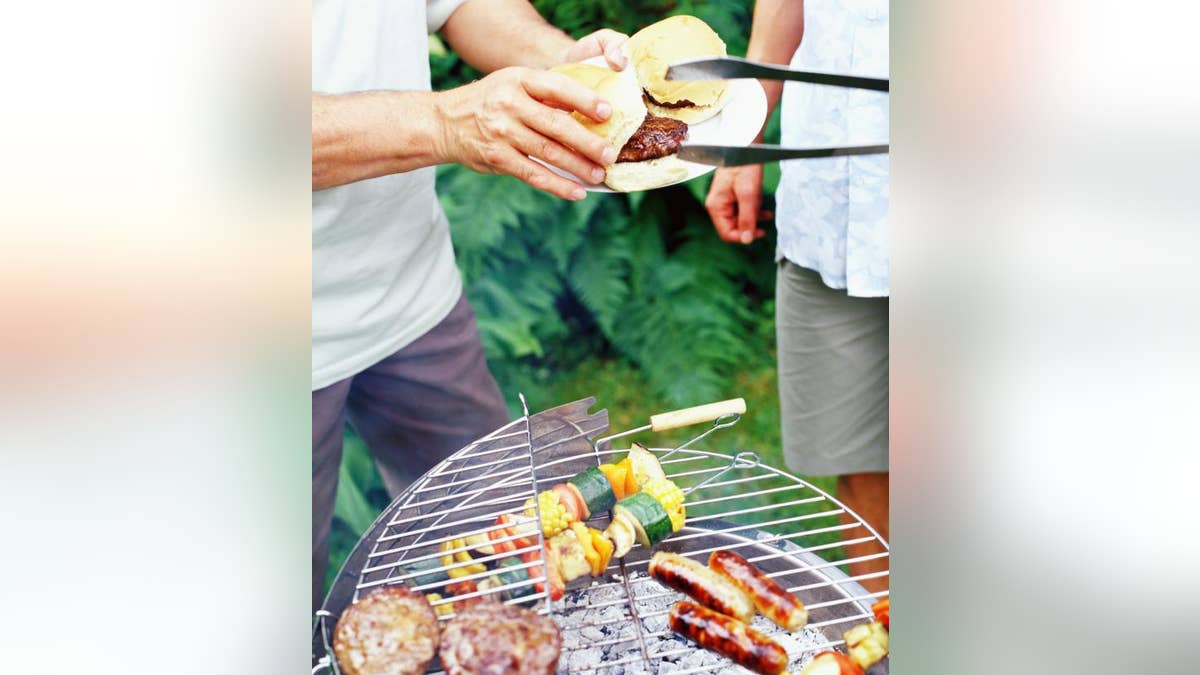
We're all aware of the health risks associated with eating too much fried food, but you might be surprised to learn that grilled foods have their pitfalls too.
And no, we're not trying to scare you away from your beloved grill this holiday weekend. However, with some studies claiming that grilled food can be linked to cancer-causing agents, it's best to know the do's and don'ts of summer grilling before you fire up that barbecue.
"The primary concern is the formation of some well-known carcinogens," says Gregory Möller, PhD, a professor of toxicology at the University of Idaho and Washington State University's School of Food Science. These carcinogens, or potentially cancerous agents, can be introduced to (or formed within) your foods by way of combustion or chemical reactions, he says.
For starters, polycyclic aromatic hydrocarbons, or PAHs, are produced through certain types of combustion, such as the burning of coal or wood. (However, Möller also adds that burning propane is "probably a very low source [for PAHs].") Another source of polycyclic aromatic hydrocarbons is produced when fats from the meat drips into the heat source, creating flare-ups. These PAHs can then affix themselves to the foods you're preparing, and may present an increased carcinogenic risk.
Others to be wary of are HCAs (heterocyclic amines), produced through a chemical reaction between heat and amino acids. "When cooking at high temps, [you] can produce heterocyclic amines in meat and fish that have been carcinogenic when tested on lab animals," explains Sharon Richter, a registered dietitian based in New York City. "[And those] could be potentially dangerous to humans."
The National Cancer Institute adds that while exposure to these agents has been seen to cause cancer in animals, it is not clear if the effect is the same when it comes to humans.
To be on the safe side, Möller and Richter claim there responsible grilling methods for avoiding two major carcinogenic culprits: smoke and char.
Start by cleaning your grill. In addition to the burning fuel source, burning those same stuck-on or blackened bits can add to the formation of PAHs. "All of the charred compounds down there are secondary sources," explains Möller.
Next, try using a marinade. "Marinating meats prior to grilling can reduce the chances of HCA formation," explains Richter. "Marinades made with an acid, such as lemon or vinegar, act as a shield," she says, but Richter advises grillers to steer clear of sugary marinades which may encourage charring.
To further reduce HCA formation, keep the heat under control. "Using rocket-high temperatures is more risky," says Richter, and Möller suggests arranging your grill so that food isn't directly above the heat source, which will reduce the likelihood of intense, direct heat as well as flare-ups.
And speaking of flare-ups, there won't be as many if there isn't as much fat dripping from the meat. "Use leaner cuts or meats that have been trimmed," advises Möller.
"Turn [the meat] often so you don’t char," Möller also adds. "It cooks through without over-exposing one side or the other, allowing that temperature to increase safely." And if you do spot some char, "it’s not a bad idea to cut it off, especially for children," Möller says.
But perhaps Möller's most important advice is to use a digital thermometer. Keeping an eye on the meats' internal temperatures will keep the chef aware of how quickly those temperatures are rising, and allow him to adjust accordingly. "Cook it right so it tastes well, and cook it safe," says Möller.
"The key words in all things associated with risk is moderation," Möller concludes. "Enjoy it, don’t get panicked about it, and be smart."








































